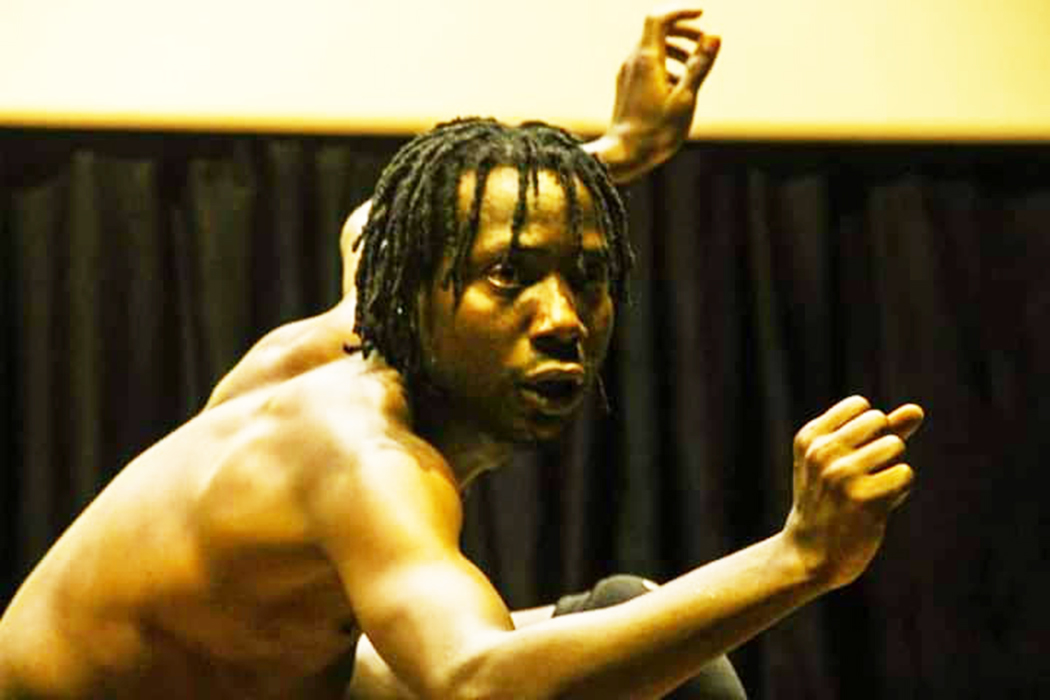Dancing to Tell Stories
Yinka Olatunbosun
While the memories of Word Dance Day 2024 still linger, the efforts of Nigeria’s dance ambassadors have continued to etch indelible marks on the cultural landscape. Take Rasheed Ibrahim, for instance. He witnessed his transformation from a young boy with restless feet to an acclaimed dancer in the dusty streets of the crime-prone Lagos neighbourhood of Bariga, with their patchwork of colours and cacophony of sounds.
Amidst the hustle and bustle of Lagos, dance became his solace, his rebellion against the shadows that loomed large. Then there was Segun Adefila, who, with his wisdom etched in every movement, guided him through the intricate tapestry of dance, unveiling a world where rhythms spoke louder than words. As he enrolled in the Creative Arts Department of the University of Lagos, the echoes of dance legends like Herbert Ogunde and Peter Badejo reverberated in his soul, igniting a fire that would illuminate Nigeria’s dance scene for generations to comeThat, in a nutshell, was the story of Rasheed Ibrahim, who started dancing at the age of seven and is now the artistic director of the Ijolomo Dance Company. Of all the difficult times, the COVID-19 pandemic was particularly challenging for him as well as for many artists whose works were tied to large gatherings. But did he learn a lesson from the restrictions?
Yes, he did. “Anytime I am with friends, I tell them that this job is about collaboration,” he intimates. “When COVID-19 happened, I was in Burundi for a festival. I was fortunate to return to Nigeria three days before the lockdown. The COVID-19 made all artists realise that if we don’t help ourselves, we can’t go anywhere. It affected us, and Zoom came in handy.”
While he was contemplating the evolving perception of the arts in Nigeria, his concern deepened over the persistent undervaluation of artistic expressions. Notably, the realm of dance in Nigeria struggles to garner the recognition it deserves. Despite the gradual emergence of dance luminaries like Ijodee and Peter Badejo reshaping societal views, the art form still faces stigma. Often, bright students are discouraged from pursuing the arts due to prevailing prejudices labelling artists as aimless. Fortunately, the tide is turning with the growing appreciation for dance, championed by entities like the Society for Performing Arts in Nigeria (SPAN), visionaries such as Segun Adefila and Gbenga Yusuf, and the unforgettable legacy of the late Wole Oguntokun.
“Back then, people didn’t respect dancers in Nigeria. They will suggest going to study law or medicine but now we’re changing the face of dance in Nigeria. The likes of Femi Odugbemi and Theo Lawson have been very helpful in funding some of my trips to dance festivals around Africa.It has been a tremendous help.”
Some dance professionals, like the renowned Korra Obidi, have vocally criticised individuals who diminish dance by relegating it as a mere accessory to other art forms, such as music. Conversely, Ibrahim firmly believes that dance has the potential to be a lucrative industry of its own.
“This is why I don’t do music videos,” he says. “They will invite you to come and dance for a three-minute song and then I will begin to rehearse for two weeks. Once I’m done with the choreography, I want my dancers to get mentioned while I get the credit for the choreography. I am not a roadside dancer. I’m blessed though I am still learning. I don’t just want to be visible on TV; I want to make a statement.“I’m not just on video twerking. I dance to make meaning; I don’t dance for dancing sake. Dance the way you want to be addressed. I have danced for a movie production. That’s a legacy.”
As a multi-faceted dancer, he effortlessly transitions between diverse dance styles, embracing a plethora of dance projects without hesitation. His artistic realm thrives on the vast spectrum of dance forms available. Adept and dynamic, he honed his craft as a choreographer, masterfully orchestrating intricate movements across eight distinct genres—from traditional to African contemporary, hip-hop to salsa and cha-cha. His accolades speak volumes, having clinched prestigious awards like the COVID-19 Dance Challenge in Lagos and the SCB-9 Dance Festival Award of Excellence in Art in Bénin Republic. Noteworthy triumphs further dot his journey, with the recent distinction at the Festival International de Danse à Gogo in Porto Novo solidifying his prowess in the realm of dance.
Expanding on his thoughts on the impact of technology on dance, he shared a profound perspective from his own experiences. Emphasising the transformative role of technology, he articulated how platforms like TikTok and YouTube have become vehicles for artist visibility, shaping their narratives and catapulting dancers into the limelight. He stressed the importance of authenticity in captivating audiences and sparking curiosity for more.
“I dance to tell stories,” he explains. “One of my dance productions is titled ‘Akoko’ meaning time. It is to reflect on the fact life is transient. My dance has addressed societal ills like kidnapping, poverty and other issues.”

